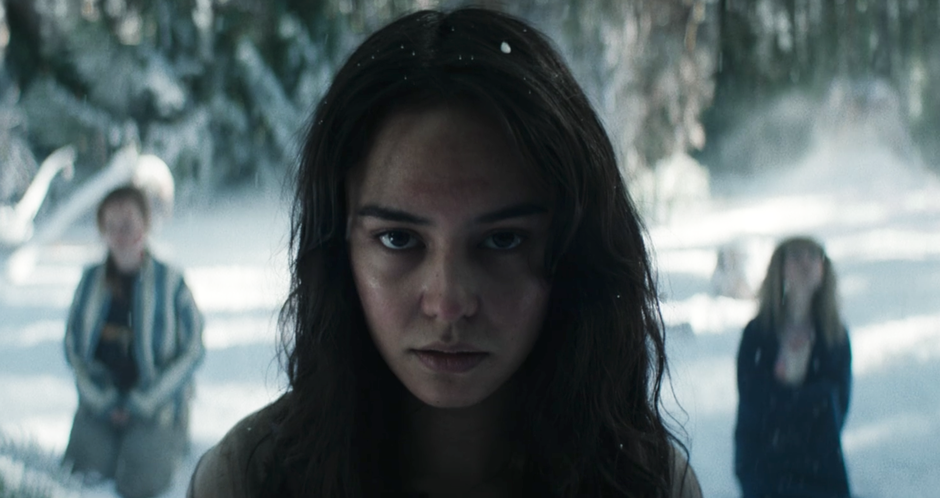From tech dystopias to luxury nihilism to teen survivalist cults, Black Mirror, The White Lotus, and Yellowjackets don't just entertain — they reflect a generation grasping for meaning in a faith-starved world.
There’s something uncanny about the hit shows of the past few years. They’re glossy, stylish, and dripping with cultural capital — but beneath the surface, they’re haunted. Whether it’s Black Mirror’s speculative tech nightmares, The White Lotus’s privileged moral free-fall, or Yellowjackets’ descent into Lord of the Flies-style survivalism, many of us can’t turn away. These aren’t just dark shows; they’re spiritual autopsies. In the absence of God — or any shared belief system — what’s left is ego, impulse, and entropy. Yet, flickering through the chaos, there are still moral sparks: a character’s stray moment of compassion, a flash of remorse, or a glimmer of hard-earned insight.
Black Mirror: Tech Without a Soul
Charlie Brooker, the creator of Black Mirror, has made no secret of his skeptical, often cynical view of modern life. Raised in a Quaker family, Brooker has identified as an atheist and has frequently critiqued religion in his work. His universe is clinical, and God is conspicuously absent. Instead, the series is filled with omnipresent algorithms, invasive surveillance, and digital prisons of our own making.
But Black Mirror isn’t just about gadgets; it’s about what happens to the human spirit when technology fills the void once occupied by religion, community, and trust. Many of its most powerful episodes — like “San Junipero” or “Be Right Back” — aren’t just dystopian warnings; they’re philosophical questions in disguise. If we can digitize our memories, upload our souls, or simulate relationships, do we still need mystery, transcendence… or morality?
The White Lotus: Decadence and Desperation
Mike White, the mind behind The White Lotus, grew up in a religious family, attending church services and Christian camps during his youth. While he has not publicly detailed his current religious beliefs, his upbringing in a devout environment has undoubtedly influenced his storytelling.
Each season of The White Lotus peels back the luxury facade to expose deep existential confusion. In these sun-drenched resorts, characters drift through vacation rituals while moral boundaries blur and fade. Yet amid the satire, there’s a subtle moral current. White seems to suggest that while many of us are no longer tethered to religious frameworks, we’re still haunted by their echoes — guilt, shame, longing, and the fear of judgment remain, even in paradise.
Yellowjackets: Trauma, Power, and Rituals Gone Wrong
Then there’s Yellowjackets, the Showtime sleeper hit that fuses survival horror with psychological drama and a hint of supernatural menace. Created by Ashley Lyle and Bart Nickerson — a married duo with backgrounds in both gritty drama and offbeat comedy — the show takes a raw, unflinching look at what happens when belief systems emerge in isolation.
When a high school girls’ soccer team crashes in the wilderness, they don’t just face starvation and trauma — they face the slow, creeping development of a new religion. What begins as superstition soon curdles into ritual, sacrifice, and cult-like hierarchy. Back in the present day, the adult survivors are still battling the consequences — and possibly forces — they never fully understood. Yellowjackets explores what happens when we construct belief systems out of desperation. And in a world where traditional religion has lost much of its authority, it asks: are we really better off?
The Search for Meaning in a Fragmented Age
What ties these series together isn’t just darkness or moral ambiguity. It’s the shared sense that something has been lost — something larger than ourselves. These shows are modern-day parables, dressed in irony and edge, where traditional values have eroded and spiritual authority has faltered. But the yearning remains.
Many of us are drawn to these stories because they mirror our own cultural disorientation. Even when religion is mocked or sidelined, the need for meaning, ritual, and redemption doesn’t disappear. It just morphs — into code, into therapy-speak, into desperate acts in the woods.
Maybe these shows aren't sermons. But they do leave us with questions. And sometimes, that's the first step back toward something sacred.





:max_bytes(150000):strip_icc():focal(939x505:941x507)/yellowjackets-1-32a8a8c4c33b432dbd952c5eb26c622d.jpg)
Comments